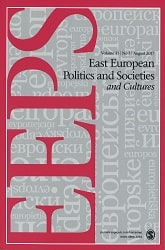The Quality of Democracy after Joining the European Union
The Quality of Democracy after Joining the European Union
Author(s): Jan ZielonkaSubject(s): Civil Society, Government/Political systems, International relations/trade, Politics and society, Social development, EU-Accession / EU-DEvelopment, Sociology of Politics
Published by: SAGE Publications Ltd
Keywords: Central and Eastern Europe; European Union; democratic quality; EU enlargement;
Summary/Abstract: Joining the European Union (EU) has changed the nature of democracy in the new member states. The EU’s membership has complicated the structure of democratic decision making by making it more multilayered and multicentered. EU membership has enhanced the powers of nonmajoritarian institutions such as the European Commission, the European Court of Justice, and various regulatory agencies. National parliaments tend to be less powerful democratic players after a country joins the European Union—and even before, as the EU accession process has shown. EU membership has also broadened the democratic public space. As a consequence, democratic decision making within the European Union has to accommodate a more diversified set of interests and cultural orientations. Providing citizens with greater access to the European decision-making process seems to be most urgent in the new member states from Central and Eastern Europe, whose citizens feel particularly detached from this process. The article tries to suggest some ways of achieving this.
Journal: East European Politics and Societies
- Issue Year: 21/2007
- Issue No: 01
- Page Range: 162-180
- Page Count: 19
- Language: English
- Content File-PDF

